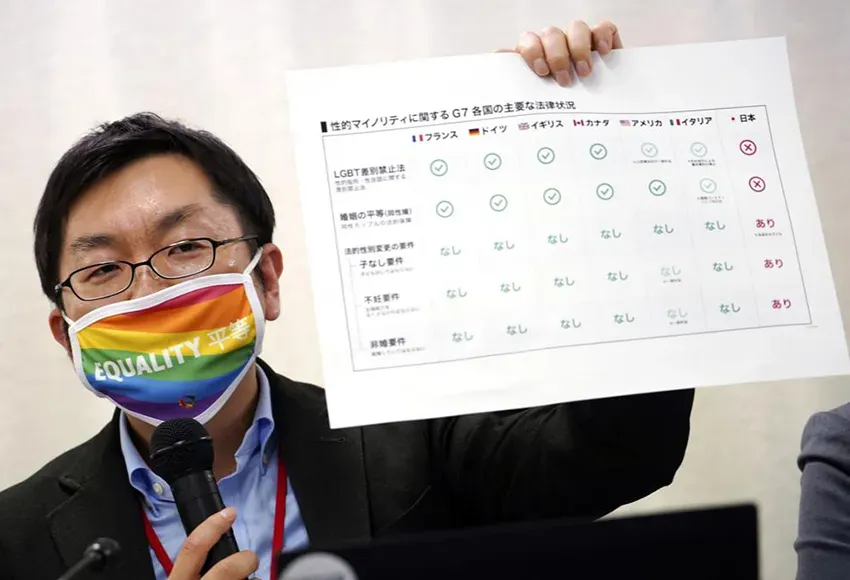Activists urge Japan to keep old promises
LGBTQ rights groups in Japan are calling for Prime Minister Fumio Kishida's government to enact anti-discrimination laws before the G-7 summit in June this year.
"Discriminatory remarks made by the prime minister's aide made it clear to the rest of the world that Japan is a country that does not care about the rights of sexual minorities," said Marriage for All lawyer Takako Uesugi.
The aide in question, Masayoshi Arai, was fired after telling reporters that citizens would flee the country if same-sex marriage was legalized.
"We must say Japan is not fit to lead the G-7 summit if we leave the situation unaddressed," Uesugi said, since Japan is the only member of the Group of Seven nations that doesn't have a law protecting sexual minorities.
Kishida's response to questions in Parliament about same-sex marriage has been beyond disappointing, according to critics. He called it "an issue that must be examined extremely carefully... because the issue may change the concept of family and values as well as society."
Activists have also pointed to the communique Japan signed at the G-7 Elmau summit, which calls for "full, equal, and meaningful participation of women and girls in all their diversity, as well as LGBTIQ+ persons in politics, economics, education, and all other spheres of society."
"Kishida's lack of effort to establish legal protection is tantamount to promoting discrimination," said activist Soshi Matsuoka, whose recent online petition for anti-discrimination laws racked up over 40,000 signatures in just a few days.
India Supreme Court gears up for Gay marriage hearing
With same-sex marriage being approved in lower courts, four Gay couples in India have filed a petition to India's Supreme Court that calls for legalization of same-sex marriage across the country. The petitions will be heard in March.
One such couple, Utkarsh Saxena and Ananya Kotia, got together in college in 2008, when homosexuality hadn't gained any of the acceptance that it sees today.
"We were actually quite scared about the consequences," said Saxena, who is a public policy scholar at the University of Oxford. "We were very fragile and vulnerable, a young couple figuring out ourselves, and didn't want, you know, something as drastic as this to break us in some sense."
The pair did come out to their friends and family once public perception had improved, and most of them were accepting.
Most expansions of LGBTQ rights in India have happened with the Supreme Court's intervention, like legal recognition of a "third gender" in 2014, and making sexual orientation an essential attribute of a citizen's privacy three years later.
"Our relationship has been, in a social sense, undefined for so long that we would like it to now be embraced in the same way as any other couples' relationship," Saxena said.
Prime Minister Narendra Modi's government has resisted the idea of same-sex marriages, however, having filed its own court statement saying that they would cause "complete havoc with the delicate balance of personal laws in the country."


